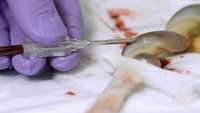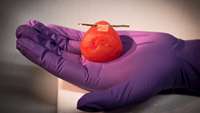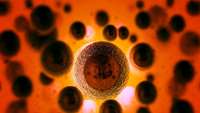Scientists find thirdhand smoke affects cells in humans
Thirdhand smoke can damage epithelial cells in the respiratory system by stressing cells and causing them to fight for survival, a research team led by scientists at the University of California, Riverside, has found. The finding could assist physicians treating patients exposed to thirdhand smoke.
CIRM Awards $12 Million Grant for Clinical Study of Gene Therapy for Cystinosis Patients
According to a press release from the California Institute for Regenerative Medicine (CIRM), the Institute’s governing body has approved a grant of nearly $12 million to University of California, San Diego researcher Dr. Stephanie Cherqui.
Gain Fat—Lose Metastasis: Converting Invasive Breast Cancer Cells into Adipocytes Inhibits Cancer Metastasis
Cancer cell plasticity facilitates the development of therapy resistance and malignant progression. De-differentiation processes, such as an epithelial-mesenchymal transition (EMT), are known to enhance cellular plasticity.
How old are your organs? To scientists surprise, organs are a mix of young and old cells
Scientists once thought that neurons, or possibly heart cells, were the oldest cells in the body. Now, Salk Institute researchers have discovered that the mouse brain, liver and pancreas contain populations of cells and proteins with extremely long lifespans some as old as neurons. The findings, demonstrating "age mosaicism," were published in Cell Metabolism on June 6, 2019.
Stem Cells Might Provide Breakthrough In Treating Severe Blistering Disease, RDEB
the team details how they used a certain type of stem cells to significantly relieve the symptoms of recessive dystrophic epidermolysis bullosa (RDEB) in mice.
Introducing the World’s First Gene-Edited Lizard
Scientists have been altering the genes of mice, pigs, goats, chickens and butterflies for quite some time. But even as Crispr, a transformative gene-editing tool, made seemingly impossible genetic alterations possible, reptiles had remained untouched.
Trial using donated eye tissue offers stem cell surgery hope
People with sight problems could benefit from a surgical trial advance that has been shown to help restore the surface of the eye.
Cause of hardening of the arteries – and potential treatment – identified
In research published today in Cell Reports, the team of researchers from King’s and the University of Cambridge have identified the mechanism behind hardening of the arteries for which there is no treatment.
3D printed tissues and organs without the scaffolding
Engineered tissues and organs have been grown with various degrees of success in labs for many years. Many of them have used a scaffolding approach where cells are seeded onto biodegradable supportive structures that provide the underlying architecture of the organ or tissue desired.
Study reports faster method for producing induced pluripotent stem cells
A recent study published in Nature Chemical Biology has found a method its authors say improves on the Nobel prize-winning cellular reprogramming method developed by Shinya Yamanaka, M.D., Ph.D. — making it possible to produce cells in a considerably shorter time and with greater success.












